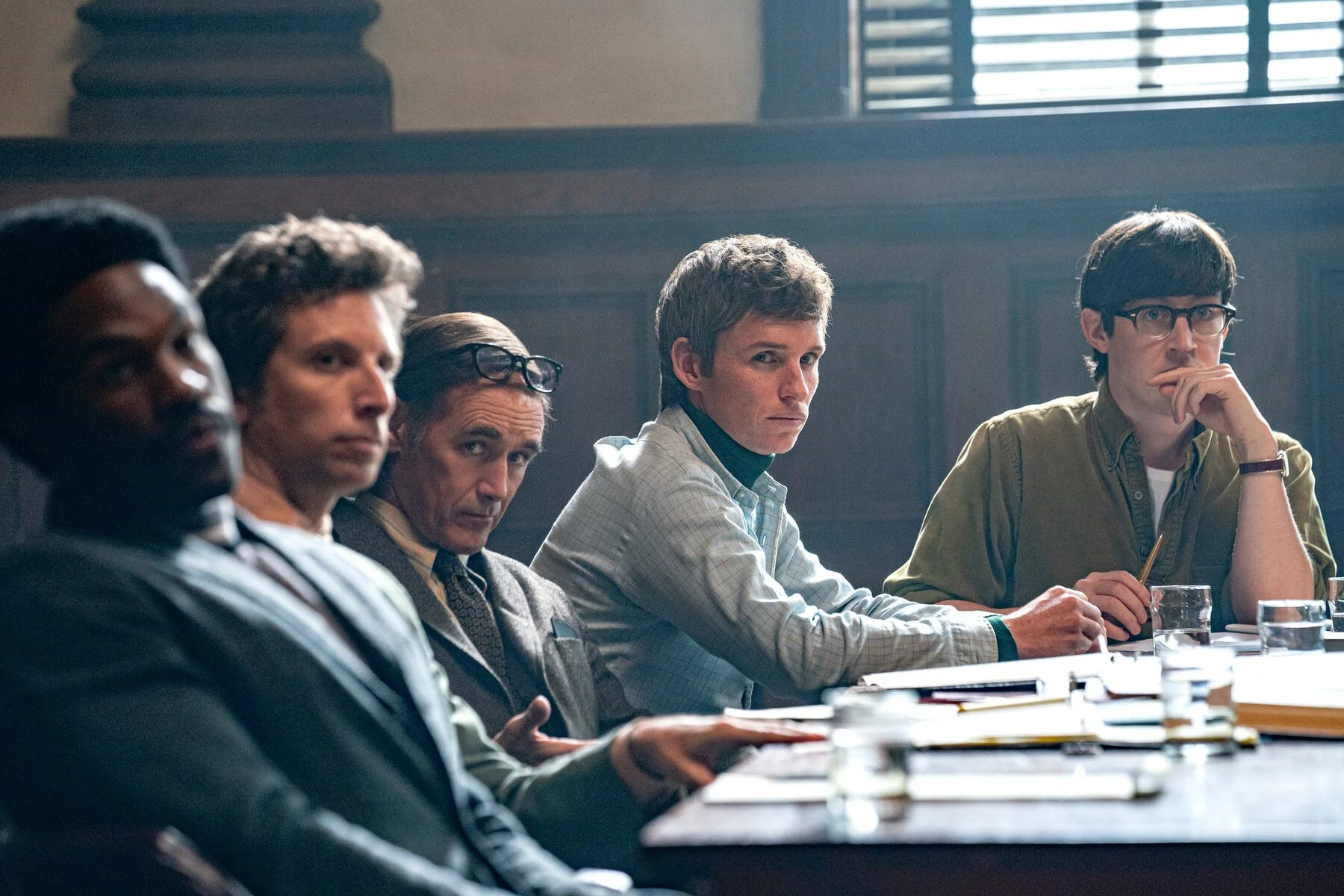The Trial of the Chicago 7 Review
A good, but not great, courtroom drama.
Following the infamous uprising at the 1968 Democratic National Convention in Chicago, Illinois, 8 people are put on trial - the Chicago 7, a group of left wing protestors who the Government claims crossed State borders with the intention of starting a riot, and Bobby Seale (Yahya Abdul-Mateen II), the leader of the Black Panthers who happened to be in the city for four hours around the time the protests occurred. William Kunstler (Mark Rylance) is the defending attorney, working with hotheads like Jerry Rubin (Jeremy Strong) and Abbie Hoffman (Sacha Baron Cohen) and calming presences like Tom Hayden (Eddie Redmayne) to try and defend against the Government’s attack dog, lawyer Richard Schultz (Joseph Gordon-Levitt), in the face of the biased Judge Julius Hoffman (Frank Langella).
The first thing to be said about The Trial of the Chicago 7 is that the acting is superb. Redmayne, Abdul-Mateen II, Strong and Rylance are all standouts. These performances cover over some of the more schmaltzy moments of the movie, and bring dialogue that otherwise might feel too forced and unrealistic into line with the rest of the movie.
Visually, the film is also strong, particularly in the riot moments, when tear-gassed filled parks and streets, throbbing masses of chanting protestors, and violent police barricades, all pop and create a visual spectacle to offset the courtroom drama.
The issue at hand with The Trial of the Chicago 7 comes down to its greatest strength - writer and director Aaron Sorkin. The film is incredibly Sorkin-esque, and while at times this is a huge benefit, at others itis to the pictures detriment.
Take for example the introduction to our characters. This is a perfect Sorkin scene, where the rapid fire dialogue leads from one character to another, changing styles and vibes between each. It is upbeat, engaging and immersive, and immediately draws you into the film. Then, as a contrast, take the courtroom insistence of the defendants audibly pre-empting Judge Hoffman’s responses - a worn and weathered trope that is rolled out time and time again to laughs from the courtroom attendees, and groans from the at home movie-goers.
The closest comparative to this movie is A Few Good Men, another Sorkin script. When compared with that, the flaws here are obvious, and understandable. This is a true story, whereas that had the dramatic license to really lean in to the requisite courtroom antics. Here, beholden to history, Sorkin struggles to lift this up into a classic prestige picture (despite what the gratuitous credits sequence would have you believe). In doing so, this film never really carves out a place in the history books for itself, or cements its reason for existence. The best element of it is the story itself, but one wishes that it had have been transformed into a must see - because all the elements of such a film are on display here, just not quite tied tightly enough together into a cohesive whole.


